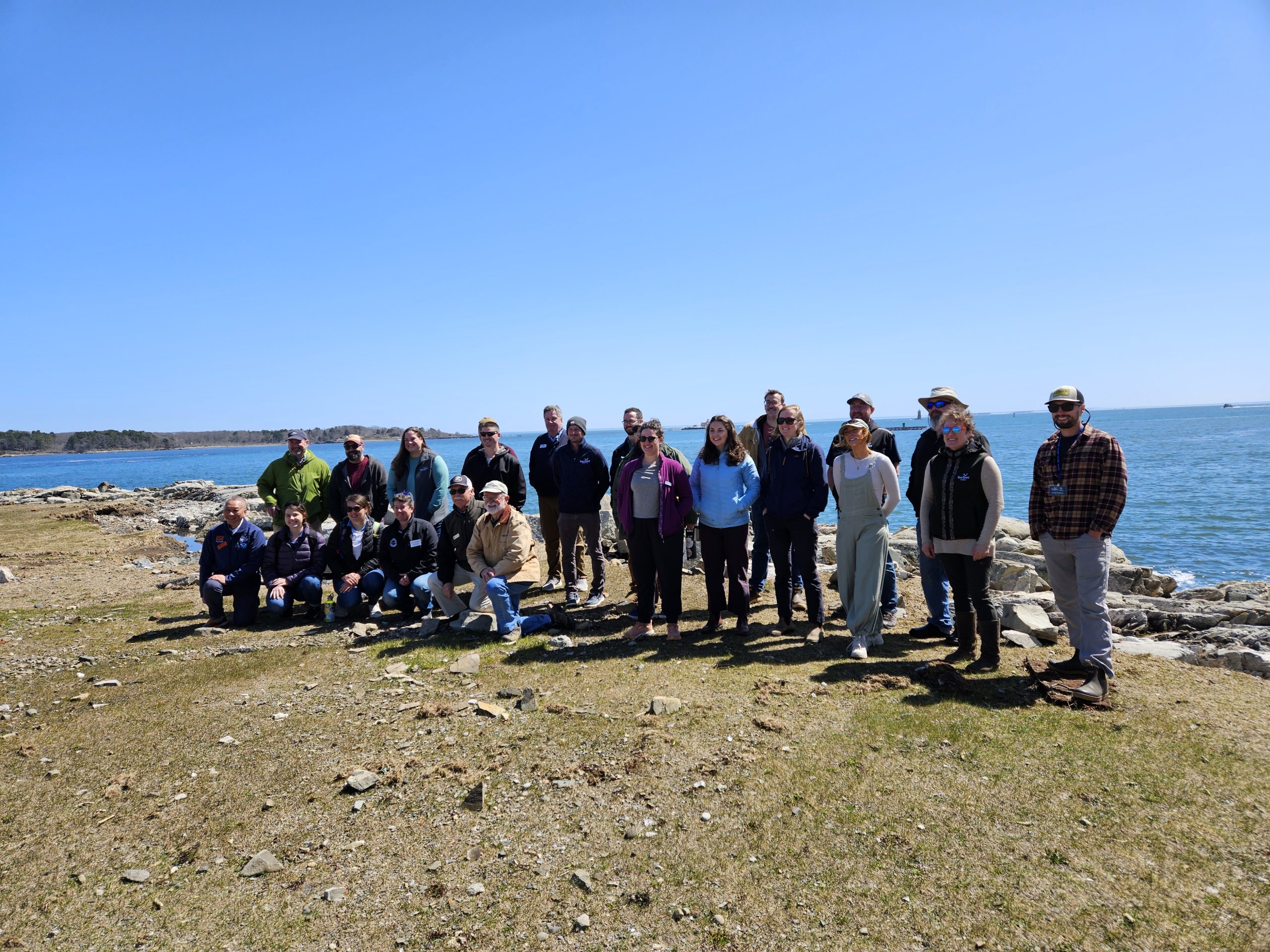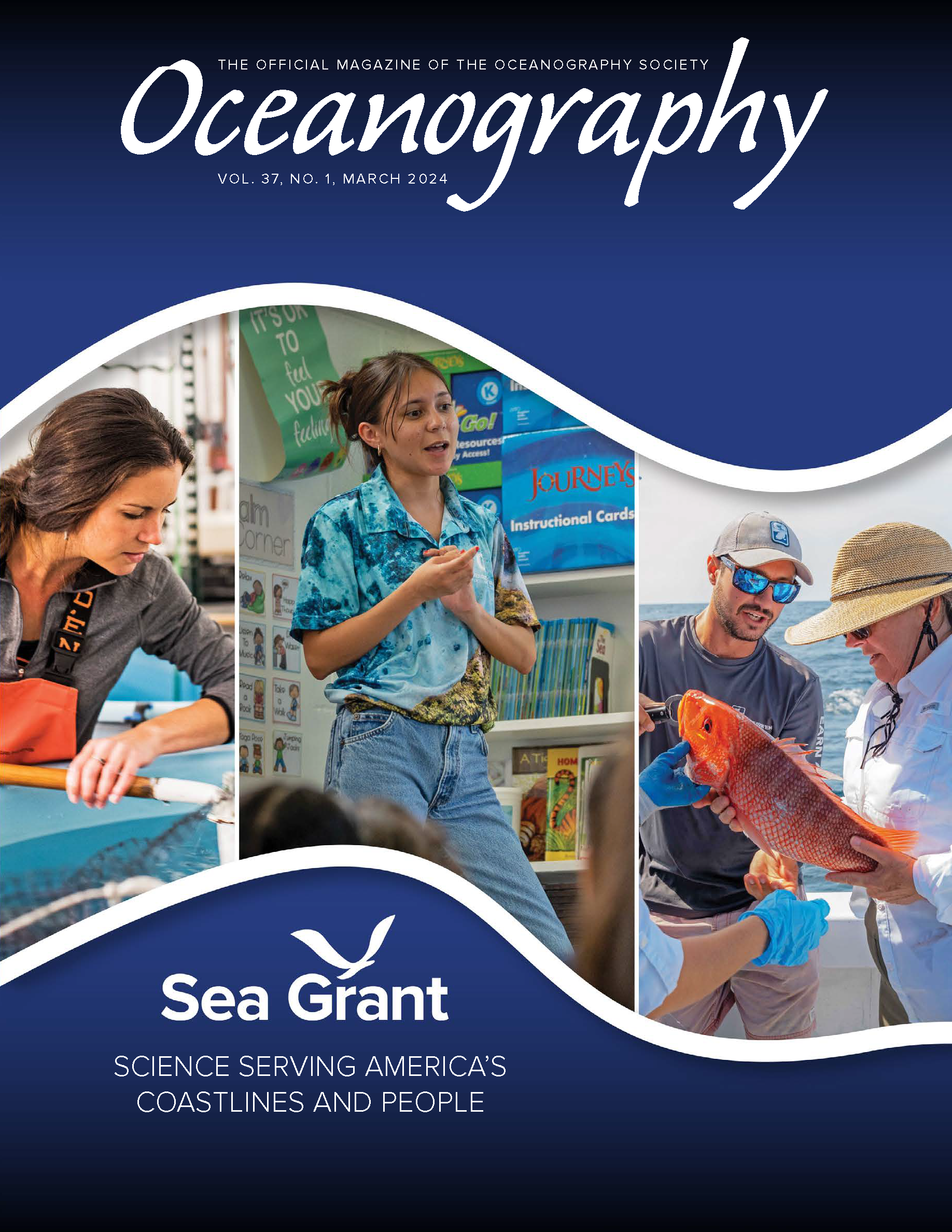It’s no secret that lobsters are well-loved across the country. After all, the American lobster (Homarus americanus) has one of the largest and most valuable fisheries along the Atlantic coast (source: NOAA Fisheries). However, this fishery faces an uncertain future. The Sea Grant American Lobster Initiative, created in 2019, works to understand ecosystem changes affecting American lobster and share findings with regional stakeholders who can use the information to influence lobster management.
This National Lobster Day (September 25) take a look at the extension and research strides made by Sea Grant’s American Lobster Initiative in its first year.
As part of the American Lobster Initiative, Maine Sea Grant coordinates local and regional efforts by Connecticut, MIT, New Hampshire, New York, Woods Hole, and Rhode Island Sea Grant programs for the Sea Grant Regional Lobster Extension Program. The teams stayed connected this year through virtual meetings, using the meetings as an opportunity to draw on each other’s strengths and experiences to address stakeholder needs during the COVID-19 pandemic.
In recent months, members of the Sea Grant Regional Lobster Extension Program played an important role in assisting direct seafood sales. ALI members from Rhode Island Sea Grant adapted the FishLine app to connect consumers with local lobstermen while ALI members from New Hampshire Sea Grant helped to create a seafood finder site for the same purpose.
“The COVID-19 pandemic had immediate impacts for our local lobster fishery, reducing demand from restaurants, markets and dealers. Many boats began selling directly to consumers. My extension work shifted in response to the needs of the industry,” said Gabriela Bradt, fisheries extension specialist for New Hampshire Sea Grant.
Another initiative undertaken by the Sea Grant Regional Lobster Extension Program, spearheaded by Connecticut and New York Sea Grant programs, is an oral history project with members of the Southern New England lobster fishing community. Extension associates are training undergraduate students to document experiences within the community before, during and after the crash of the fishery in the 1990’s. The interviews will be conducted virtually with lobstermen and state resource managers this coming fall.
On the research side of the Sea Grant American Lobster Initiative, funding was recently announced for the second round of research projects, and many of the projects funded in 2019 are forging ahead despite setbacks related to the COVID-19 pandemic.
Jason Goldstein and his team from Wells National Estuarine Research Reserve released 24 ocean drifters in the southern Gulf of Maine to mimic where larval lobsters go as they float in surface currents. This information will be used in part to better understand the impacts of warming Gulf of Maine waters on the fate of lobster larvae that recruit into the fishery.
Meanwhile, Rick Wahle and his team at University of Maine are sampling wild-caught larval lobsters and conducting lab-based experiments to learn more about linkages between young-of-year recruitment and changes in zooplankton prey. Also at University of Maine, Damian Brady and his team are about to start the first tests of a larval transport model that will elucidate how ocean warming could impact larval distribution.
Andrew Goode, a Ph.D. candidate in the School of Marine Sciences working with Damian Brady, is excited to be a part of the team of experts working to answer these complex questions.
“Working with this team has offered unparalleled support for my research and the advancement of knowledge about lobster and organism responses to ocean change.”
The biological concerns addressed by these research projects are closely related to socioeconomic concerns for the American lobster fishery and the communities it supports in the Northeast. The research and extension efforts brought about by the American Lobster Initiative are vital to increasing the American lobster industry’s resilience.
As the Sea Grant American Lobster Initiative progresses, the Sea Grant Regional Lobster Extension Program will continue to address stakeholder needs through the annual Regional Lobster Research and Outreach Summit, which will allow the lobster industry to provide input and feedback on research priorities.
“I think the Summit has a lot of potential to bridge the research, extension, management, and industry sectors,” said Amalia Harrington, Northeast Regional Lobster Extension Project Coordinator.
Additionally, targeted workshops will inform and engage local lobster industry members and connect end-users with the results of the 4-year Sea Grant American Lobster Research Program. Research funded in 2019 is expected to conclude in 2021, while research funded in 2020 is expected to conclude in 2022.
The Sea Grant American Lobster Initiative is dedicated to increasing the American lobster industry’s resilience to the biological, economic and social impacts of ecosystem change in the Gulf of Maine, Georges Bank and southern New England so that claws can hopefully be enjoyed on National Lobster Day for years to come.


